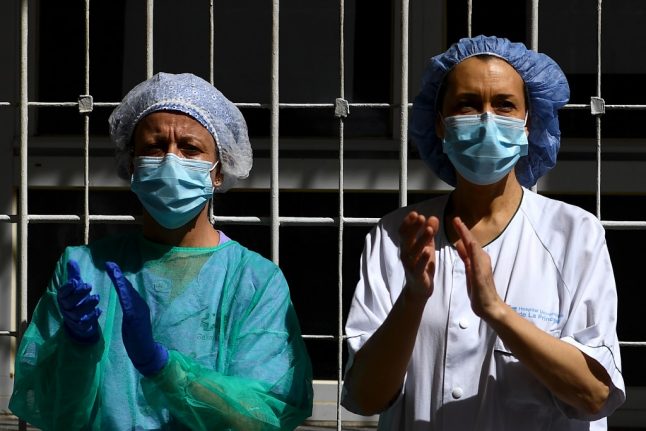With Thursday's figures, Spain's total death toll from the coronavirus now stands at 24,824.
which has registered a total of 215,216 confirmed cases, has suffered the fourth most fatalities in the world behind only the United States, Italy and the United Kingdom.
For six days in succession, the toll has hovered around 300 daily deaths, far from the peak of 950 deaths in 24 hours recorded in early April.
Some 2,628 others were declared cured, bringing the total to 114,678.
As a further sign of the tension easing, Madrid on Friday closed the immense field hospital installed at the end of March in the exhibition pavilions of the trade fair.
The facilities will remain in place, however, in case there is a new wave of contagion.
Spain will further ease strict lockdown measures this weekend, allowing individuals to leave the house for sports activities.
The move follows an easing of restrictions last weekend when children were allowed out of the house for the first time since March 14.
But kids are only allowed our during certain hours of the day to avoid overcrowding.
Children and the elderly are also not allowed to go out at the same time in a bid to keep them apart.
This easing occurs after seven weeks of severe confinement during which the Spanish could only leave thee house if they could not work from home, to go to the supermarket, the pharmacy or briefly take out the dog.
Prime Minister Pedro Sanchez announced that the beginning of the deconfinement could begin from May 11 and spread over several phases until the end of June, if conditions allowed.



 Please whitelist us to continue reading.
Please whitelist us to continue reading.
Member comments